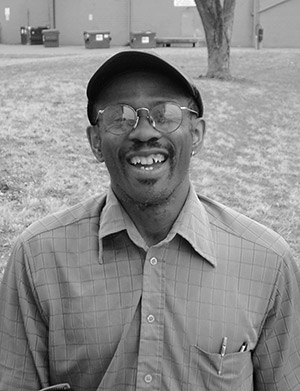5/5 Stars
Music Box/Brainstorm Media, Compliments of the Minneapolis-St. Paul International Film Festival 43
Crime/ Mystery/Drama/Thriller
By HOWARD MCQUITTER II

The outback in South Australia is photographed in spectacular black and white in the film Limbo that richly deserves wider release. Limbo is a fictional town, at one time a mining and tourist place.
The film opens up with Travis Harley (Simon Baker), a weary, middle-aged detective, driving into Limbo to investigate a missing young Indigenous woman from 20 years ago, Charlotte Hayes. He stays at the town’s only motel: Limbo Motel. A good part of the motel is inside a cave. While he’s in his motel room, Travis melts down an unidentified opioid drug in a spoon and shoots up in his arm with a hypodermic needle. Heroin or fentanyl, or something else, the viewers do not know. (Director Ivan Sen’s Limbo is eerily similar to John Sturges’ 1955 Bad Day at Black Rock.)
The first potential witness Travis contacts is Charlie (Rob Collins), the older stepbrother of Charlotte, living in a trailer. Charlie, like the other local Indigenous residents, is rightfully suspicious and resentful of the dominant white society, including white cops. Charlie depends heavily on alcohol.
Travis’ next potential witness is Emma (Natasha Wanganeen), raising three children on her own, two of the children are Charlie’s biological children, the other child is Emma’s biological daughter. Charlie is estranged from Emma and the children .

Travis also finds out soon after he arrives in Limbo, an old acquaintance, Leon, has died from dementia the year before. Leon’s elderly brother Joseph (Nicholas Hope), an alcoholic, shows him the unmarked grave of Leon. Later Travis goes back to ask Joseph more questions about the disappearance of Charlotte. Joseph, who is white, was known to throw parties, giving adolescent girls alcohol and drugs. The Indigenous people believe Joseph is the prime suspect, but he categorically denies any involvement in her death or disappearance. But do we believe him? Charlie had been accused of his stepsister’s disappearance some years back. He, too, clearly denies any involvement in the disappearance. I believe Charlie is totally innocent of the crime. The open and deliberate neglect from white law authorities (the U.S. has this same problem in racial disparities) to make a thorough investigation of an Indigenous person is key here, leaving much pain for Charlie and Emma not knowing what, why and how the crime happened. Limbo is a clever whodunit if one is patient enough to stick with it.
Cast: Simon Baker (Travis Hurley), Rob Collins (Charlie), Natasha Wanganeen (Emma), Nicholas Hope (Joseph), Nick Buckland (Mechanic), Alexis Lennin (Jessie), Craig Rossiter (Officer).
Director: Ivan Sen.
Screenwriter: Ivan Sen.
Cinematography: Ivan Sen.
Composer: Ivan Sen.
Country: Australia.
Language: English.
Running time: 104 minutes.
Howard McQuitter II is a longtime movie critic. He has been reviewing movies for the alley since 2002.









